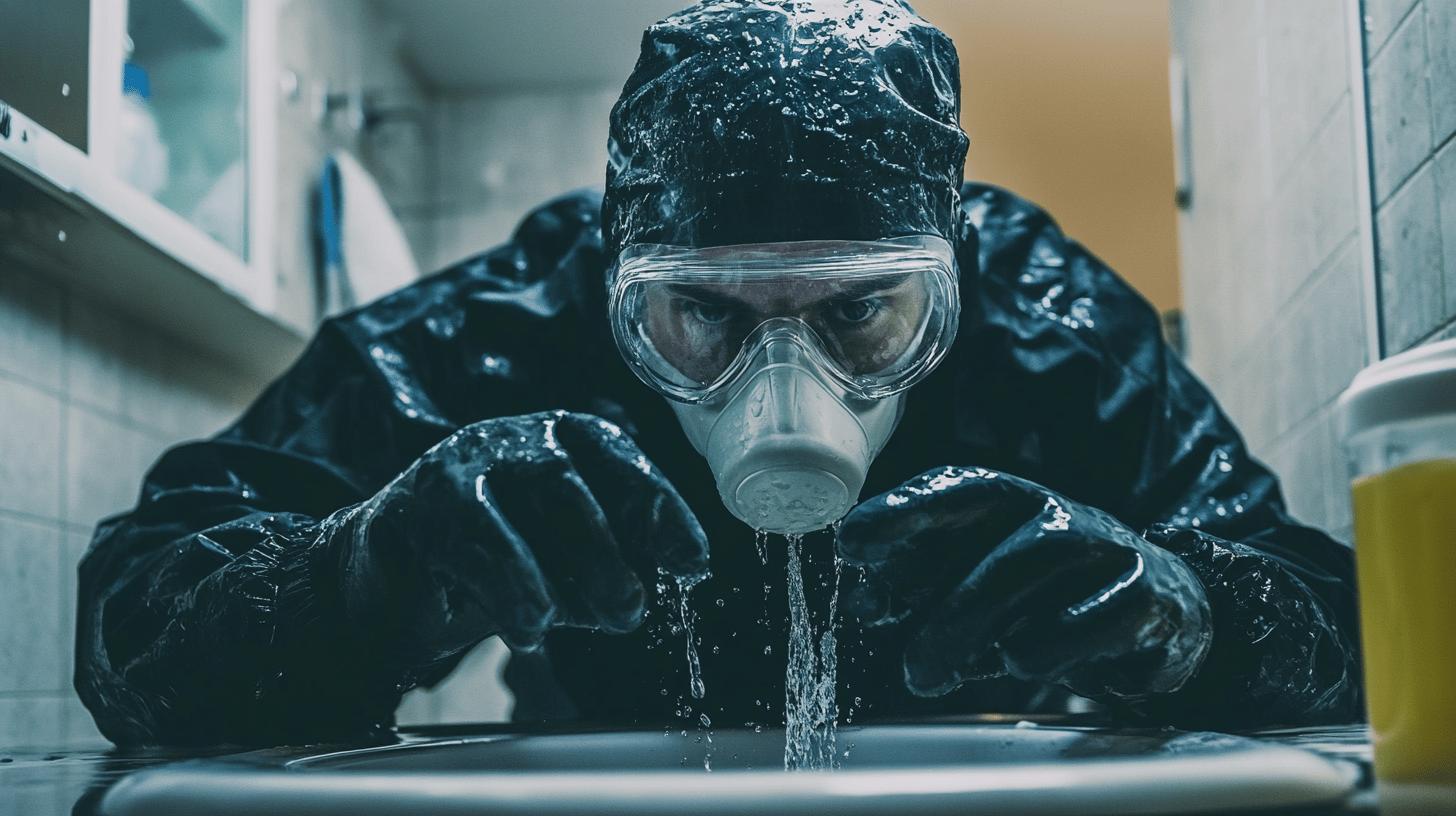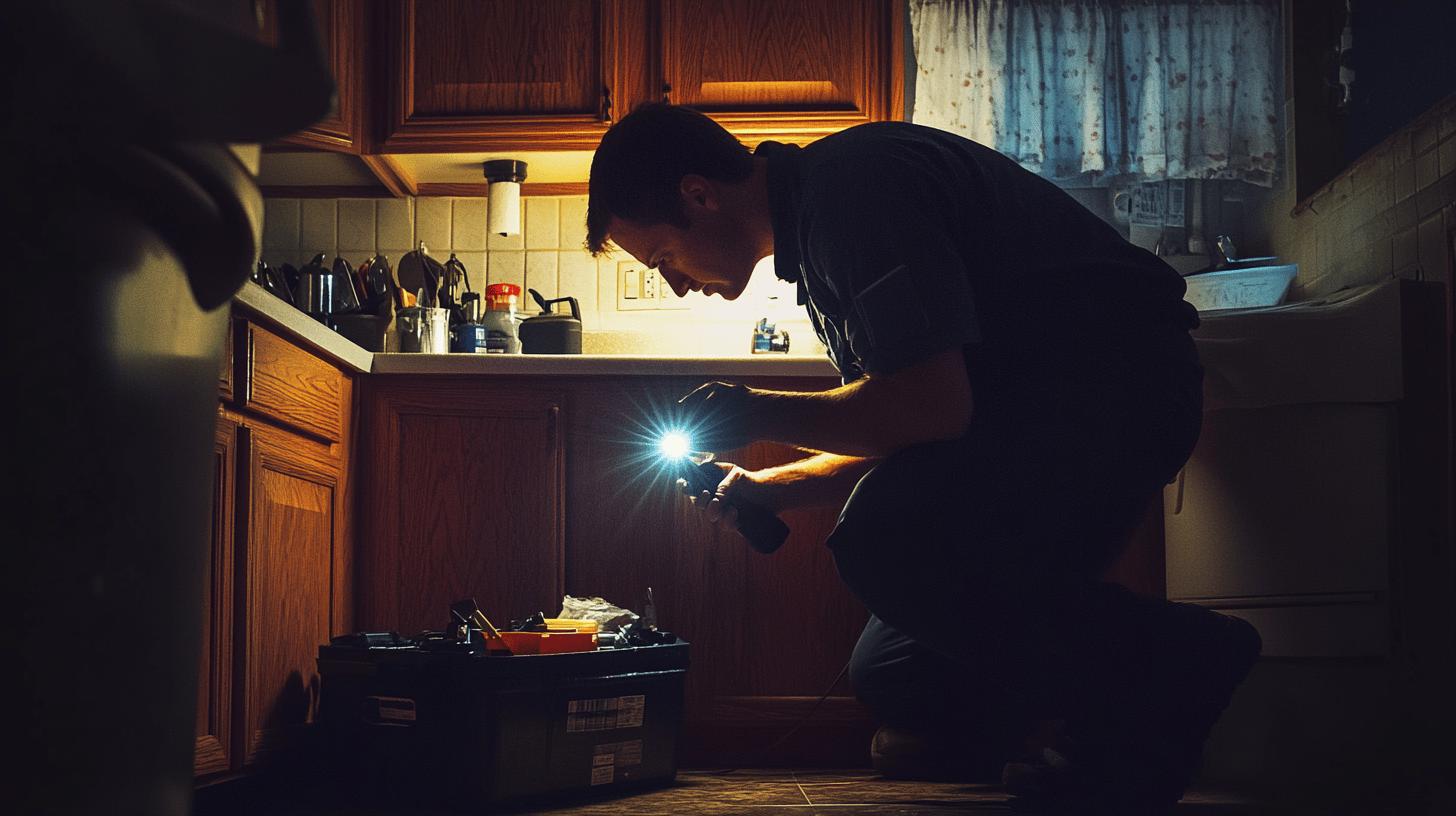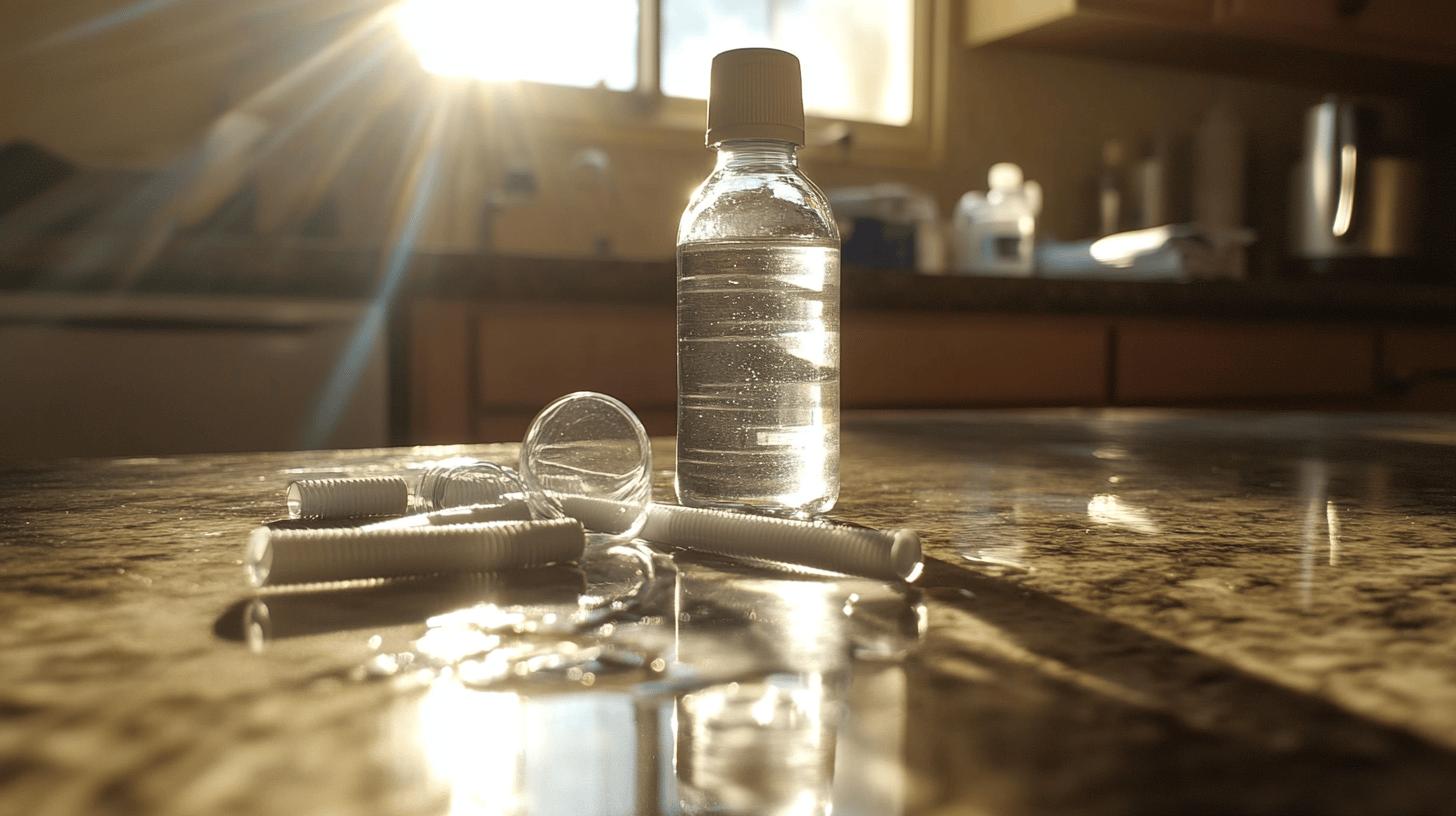TL;DR:
- Drain cleaners can melt or damage plastic pipes (PVC, CPVC, PE, ABS, PP).
- Use sparingly to prevent leaks and costly repairs.
- Safety precautions: follow instructions, wear gloves/goggles, ensure ventilation, avoid mixing cleaners, and don’t use boiling water.
- Safer alternatives: enzymatic drain cleaners and natural methods (baking soda and vinegar).
- Hire professionals for persistent clogs or complex issues—tools include drain cameras and hydro jetting.
- Common misconceptions: not all drain cleaners are safe for all pipes, protective gear is essential, mixing cleaners is dangerous, and chemical cleaners aren’t the only solution. Consult professionals for advice.
Can drain cleaner melt plastic? It’s a valid concern for anyone using chemical cleaners to clear drains. While plastic pipes are generally more resistant than metal, certain strong chemical drain cleaners—especially those containing acids or strong bases—can still cause damage over time. These chemicals can weaken plastic pipes, leading to cracks or leaks, especially with frequent use. Understanding which types of plastics are more vulnerable to these chemicals helps you make safer choices. By taking preventive measures or opting for safer cleaning alternatives, you can protect your plumbing system from long-term harm.
Understanding the Impact of Drain Cleaners on Plastic
Yes, drain cleaners can melt plastic. Many drain cleaners contain strong acids or bases designed to break down clogs, but these chemicals can also damage or weaken plastic pipes. Repeated use of these cleaners can degrade plastic over time. While PVC and CPVC pipes are more resistant to chemical damage, they’re not immune and can still suffer from the effects of frequent exposure to harsh drain cleaners. It’s important to use these products cautiously to avoid long-term damage to your plumbing.
Let’s look at some common plumbing plastics and their vulnerability to drain cleaners:
- PVC (Polyvinyl Chloride): Usually resistant but may weaken with repeated exposure.
- CPVC (Chlorinated Polyvinyl Chloride): Offers better resistance but is still at risk with regular use.
- PE (Polyethylene): More prone to damage because of lower chemical resistance.
- ABS (Acrylonitrile Butadiene Styrene): Can be affected by long-term exposure to some chemicals.
- PP (Polypropylene): Moderately resistant but can degrade under harsh conditions.
Drain cleaners can cause significant damage to your plumbing, leading to costly repairs or replacements. They can degrade plastic pipes, increasing the risk of leaks and water damage. To minimize these risks, it’s important to use drain cleaners sparingly and with caution. For stubborn clogs, it’s best to call in professional plumbers, who can address the issue without causing long-term damage to your pipes.
Safety Tips for Using Drain Cleaners on Plastic Pipes

Yes, safety is very important when using drain cleaners on plastic pipes. These cleaners can cause chemical burns, release harmful fumes, and potentially damage your plumbing. If misused, they might warp or melt plastic pipes. Understanding these risks is key to staying safe and protecting your plumbing system.
Here are some safety tips:
- Follow the manufacturer’s instructions closely.
- Wear gloves and goggles for protection.
- Ensure good ventilation to avoid harmful fumes.
- Never mix different cleaners to prevent dangerous reactions.
- Don’t use boiling water on plastic pipes to avoid warping.
- Keep cleaners away from children and pets.
If you’re unsure about using drain cleaners safely, it’s best to call a professional plumber. They can handle blockages effectively without risking damage to your pipes. Hiring a pro helps you avoid potential hazards and keeps your plumbing system in good condition.
Alternatives to Chemical Drain Cleaners for Plastic Pipes
Yes, there are safer alternatives to chemical drain cleaners. Enzymatic drain cleaners are a great option—they use natural enzymes and bacteria to break down clogs slowly and safely, without damaging your pipes. These cleaners are also environmentally friendly and provide a sustainable way to maintain your drains, especially when you have plastic plumbing. Choosing these milder methods helps protect your pipes and reduces health and environmental risks.
Natural Drain Cleaning Methods
Yes, baking soda and vinegar are a natural, safe way to clean drains without damaging pipes. Simply pour half a cup of baking soda down the drain, followed by vinegar. Let it fizz for about 15 minutes, then flush with hot water. This method works well for minor clogs and regular maintenance.
However, if natural remedies don’t clear the blockage, it’s time to call a professional plumber. They can diagnose and resolve more complex issues safely, ensuring your plumbing stays in good condition for the long term.
Professional Solutions for Persistent Plumbing Issues

Yes, hiring professional plumbers is the best choice for persistent issues. They provide the safest and most effective solutions for tough clogs and complex plumbing problems. Plumbers use specialized tools and techniques to resolve issues efficiently and prevent any further damage.
For complex problems, plumbers use tools like drain cameras to locate and assess blockages. They then apply targeted solutions, such as hydro jetting or professional-grade augers. Their expertise ensures the problem is thoroughly resolved, helping maintain the long-term health of your plumbing system.
| Issue | Recommended Solution |
|———————-|—————————-|
| Recurring Clogs | Professional hydro jetting |
| Tree Root Intrusion | Rooter service |
| Pipe Corrosion | Pipe relining or replacement |
| Water Pressure Issues| System inspection and adjustment |
Exactly! Professional plumbers not only fix current issues but also provide valuable maintenance advice to help keep your plumbing in top shape. Their guidance can prevent future problems, ensuring long-term reliability and saving you from costly repairs down the road.
Myths and Misconceptions About Drain Cleaners
Yes, myths about drain cleaners can lead to mistakes. For example, many people assume that all drain cleaners are safe for every type of pipe, but some contain harsh chemicals like sodium hydroxide or sulfuric acid, which can damage plastic pipes if used too often. Understanding these myths helps you make safer choices and protects your plumbing from potential harm.
- Myth 1: All drain cleaners are safe for all pipes.
- Myth 2: Protective gear is unnecessary with chemical cleaners.
- Myth 3: Mixing cleaners boosts effectiveness.
- Myth 4: Frequent use of cleaners doesn’t harm plumbing.
- Myth 5: Chemical cleaners are the only effective solution for clogs.
Recognizing these misconceptions helps avoid damage and saves money in the long run. Always follow safe usage guidelines to protect your pipes. If you’re unsure about the best method, it’s a good idea to consult a professional plumber for reliable advice and solutions.
Final Words
Navigating the effects of drain cleaners on plastic pipes can be tricky. Chemical reactions can damage certain plastics, so it’s important to understand the potential risks. Prioritizing safety means following proper guidelines and considering professional advice.
Alternatives like natural or enzymatic cleaners are safer for maintaining plastic pipes and offer effective solutions without the harsh impact of chemicals. For stubborn plumbing issues, professional expertise is often the best way to ensure long-term results.
Being aware of common myths about drain cleaners can help prevent unnecessary damage. Whether you’re wondering if drain cleaner will melt plastic or need safety tips, making informed choices is key to keeping your plumbing in good shape.
FAQ
Will drain cleaner melt plastic?
Drain cleaner can damage or melt plastic, particularly when made with strong acids or bases. Repeated use or high concentrations are more likely to cause harm.
Is drain cleaner safe for shower drains made of plastic?
The safety of drain cleaners on plastic shower drains depends on the cleaner’s chemical composition. Always check the packaging for compatibility with plastic materials.
Will Drano dissolve plastic toys?
Drano can damage or melt plastic toys if direct contact occurs. It is crucial to use drain cleaners cautiously to avoid unintended damage.
What is the best drain cleaner for plastic pipes?
The best drain cleaners for plastic pipes are those specifically labeled safe for PVC. Always verify the product’s compatibility with plastic before use.
Which drain cleaners are safe for PVC pipes?
Drain cleaners labeled as PVC-safe are typically safer options. Enzymatic drain cleaners are less harsh and generally recommended for use with plastic pipes.
Can Liquid Plumber dissolve plastic?
Liquid Plumber and similar products may damage plastic if used improperly. Always check the product instructions for compatibility with plastic materials.
Is Instant Power Drain Cleaner safe for plastic pipes?
Instant Power Drain Cleaner may be safe depending on its chemical composition. Verify the manufacturer’s guidelines to ensure safety with plastic pipes.
What can drain cleaner dissolve?
Drain cleaners are effective in breaking down organic materials, hair, grease, and sometimes paper products but can also be harmful to certain plastics.

